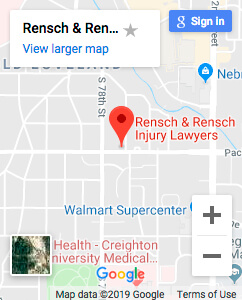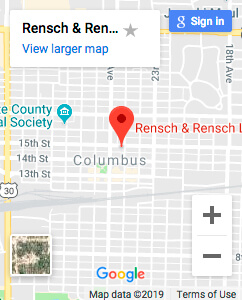5 Critical Components of Tire Safety
Car tires are the only part of your vehicle that comes in direct contact with the road. In spite of this, many people neglect to care for this critical equipment. According to AAA, tires have an impact on your car’s handling, braking, ride comfort and overall safety. For the best performance and safety of your vehicle, you must maintain its tires.
Unfortunately, even the most safety-conscious drivers cannot control the actions of other road users. If you were injured in an accident that a negligent driver caused, call Rensch & Rensch Law.
An Omaha personal-injury lawyer from our firm can evaluate your case to determine if you may have valid grounds for a lawsuit. Call us today at 1-800-471-4100 to schedule a consultation.
In the meantime, read on to learn five critical components of tire safety:
- Tire Rotation
The National Highway Traffic Safety Administration recommends that vehicle owners rotate their tires according to the car’s operating manual. Rotating tires at regular intervals can limit irregular wear. This will make your tires last longer and will improve the fuel efficiency of your vehicle.
Most manufacturers recommend rotating the tires every 5,000 to 8,000 miles, or when you start to notice uneven wear. Keep in mind that certain manufacturers do not recommend tire rotation, particularly if the front and back tires are different sizes.
- Balance and Alignment
According to AAA, balancing and aligning your tires are critical safety measures. Take your vehicle to a qualified mechanic or technician, and make sure he or she uses professional, industry-standard equipment. This will reduce the vibration of your car and improve its overall handling.
- Pressure
Maintaining adequate tire pressure is one of the most important aspects of vehicle safety. Tires that are not at the correct pressure will make the car difficult to control and may reduce your ability to avoid obstacles or come to a stop in a reasonable amount of time.
Make sure your tires stay at the pressure that the manufacturer recommends. Portable tire pressure gauges are inexpensive, and the NHTSA recommends that all motorists carry one in their car.
- Tread
Tires with insufficient tread put you at risk of skidding or losing control of your vehicle. This is particularly true when braking sharply or during inclement weather. Check your tire tread wear indicators to determine if you need to replace them, or visit your manufacturer for advice.
- Size
Not all tires are the same size. If you fit the incorrect tires to your car, you will increase your fuel consumption and put you and your passengers at risk. Always ensure that you use tires that are recommended by your tire dealer or car manufacturer.
If you were in an accident that was not your fault, contact Rensch & Rensch Law for help. An Omaha personal-injury attorney can guide you through the claims process. Call us today at 1-800-471-4100 to schedule an appointment.



